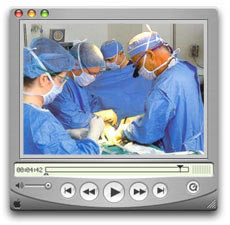Frequently asked questions regarding operative reports
Operative Reports Before Ligation Reversal Surgery
Undergoing a tubal ligation reversal at Chapel Hill Tubal Reversal Center is an important endeavor and we want to maximize every patient's chance of ligation reversal success. Operative reports are important because they allow us to determine the likely success of tubal ligation reversal surgery. When the operative report is not available, we offer the option of starting with a screening laparoscopy. The choice of whether to start with screening laparoscopy is up to the individual patient. Since most tubal ligation procedures are reversible, it is an option, and not a requirement at Chapel Hill Tubal Reversal Center.
What is an operative report?
An operative report is a typed report describing exactly what the doctor saw and did during your tubal ligation procedure.
Where can tubal ligation operative reports be obtained?
Tubal ligation operative reports can be obtained from the hospital or health care facility where you had your tubal ligation surgery. Your doctor may have a copy of your operative report in their office. The hospital will have a copy of the report in your hospital record and will keep them on file for a limited time.
How long does the hospital keep my operative report?
The time a health care facility will keep records will vary by state. Most states have laws specifying how long records must be kept. If a state does not have laws regarding keeping medical records, then the state medical board will have guidelines which the board encourages physicians to follow. North Carolina, for instance, has no state laws mandating how long medical records will be kept. The North Carolina State Medical Boards recommends physicians keep records for a minimum of 10 years. Medicare and Medicaid records are recommended to be kept for a minimum of five years.
The physician’s office or hospital will typically keep records in their file room for a limited time and then transfer the files to another storage area for several years. Some facilities will create digital records of your health care information and store this information indefinitely.
How can I obtain an operative report?
Contact the medical records department of the hospital where your tubal ligation was performed. You will have to fill out a medical records release form. The operative report can be mailed or faxed to you and to our facility. Please be aware some medical facilities are very busy and have limited medical record personnel. This means they may take some time to send records and you might have to keep a close watch to make sure the records are actually sent in a timely fashion. Chapel Hill Tubal Reversal Center has instructions and a form you can use to obtain a copy of your operative report.
What happens if I can not get my operative report?
If you can not get your operative report you can try to get your doctor to give you more information about the type of ligation surgery you had. Although this is not as accurate as an operative report, this can provide some information. Many doctors will do their tubal ligation surgeries the same way over many years and they should be able to tell you how your procedure was done.
Your best option is to consider a screening laparoscopy. This involves placing a small telescope under your umbilicus (belly button) and looking at the fallopian tubes. This provide quick and accurate information about the condition of your fallopian tubes. When the screening laparoscopy is performed here, we proceed immediately with the tubal repair. If the laparoscopy shows that the tubes cannot be repaired, the procedure is ended without the laparotomy incision and a partial refund is given to the patient.
Will Chapel Hill Tubal Reversal do my reversal surgery if I do not have an operative report?
Yes. We frequently encounter many patients who are unable to obtain their operative report. The choice of whether to start with screening laparoscopy is up to the individual patient. Since most tubal ligation procedures are reversible, it is an option, and not a requirement.
Read More about Operative Reports Before Ligation Reversal Surgery

No comments:
Post a Comment